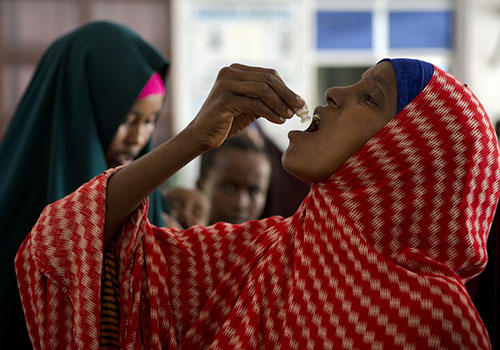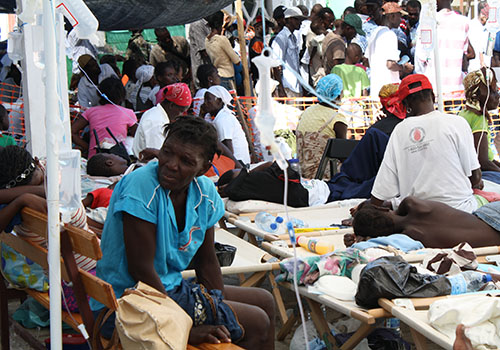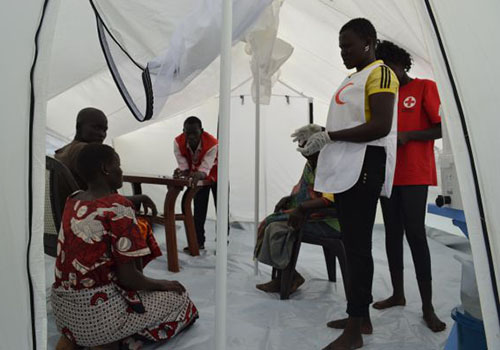About the GTFCC
A global network coordinating the fight against cholera
A global network coordinating the fight against cholera
The Global Task Force on Cholera Control is a partnership of more than 50 institutions, including NGOs, academic institutions, and UN agencies.
The GTFCC convenes multi-sectoral partners and serves as an effective platform to support countries in the implementation of Ending Cholera: A Global Roadmap to 2030, which targets a 90% reduction in cholera deaths and cholera elimination in 20 countries.
The GTFCC provides countries with tools, capacity support, and assistance to develop National Cholera Plans (NCPs) and implement them effectively, including:

The GTFCC was created in 1992, following an unprecedented cholera outbreak in Peru.
In 2011, following the emergence of cholera in Haiti, the 64th World Health Assembly called for the formal renewal of the GTFCC.
In 2014, the GTFCC was again revitalized to create new momentum around cholera control and begin further coordination of partners and activities.
In 2017, with the launch of Ending Cholera: A Global Roadmap to 2030, the GTFCC became the locus of a highly energized community of organizations, countries, and donors seeking to control cholera. Partner organizations signed the Declaration to End Cholera, committing their resources and expertise to carrying out the Global Roadmap.
In 2018, WHO member states passed a resolution at the 71st World Health Assembly committing to the Global Roadmap. That same year, at the WHO Regional Committee for Africa, 47 African countries adopted a regional framework in alignment with the Roadmap.
GTFCC declaration on Ending Cholera
WHA resolution
African Regional Framework

The Steering Committee provides direction, leadership, and oversight for all GTFCC activities. The Committee meets on a quarterly basis, with at least one annual face-to-face meeting. The Chair of the Steering Committee, Dr. Frew Benson, also serves as Chair of the GTFCC.
The GTFCC charter was created to affirm our partners’ collective vision of a world in which cholera no longer presents a threat to public health. The charter also commits to the Global Roadmap’s target of a 90% reduction in cholera deaths by 2030.
The GTFCC is a partnership of NGOs, academic institutions, and UN agencies. The success of the GTFCC is built upon this partnership model, with all partners playing a critical role in our collective efforts to end cholera. Learn more about our partners.
Global strategic direction and accountability is provided by the GTFCC Steering Committee, the Independent Review Panel, the GTFCC Secretariat, the GTFCC Working Groups, and the Country Support Platform.
. The Steering Committee is comprised of member institutions, donors, and endemic countries. Each year, a General Assembly of all stakeholders occurs on the sidelines of the broader GTFCC Annual Meeting.
In addition, an Independent Review Panel (IRP) provides transparent and in-depth review of National Cholera Plans (NCPs) for endorsement by the GTFCC.
The GTFCC secretariat is hosted by WHO and ensures coordination between the WHO cholera program and the Country Support Platform.
The WHO cholera program establishes and upholds norms and standards for cholera control efforts through the GTFCC Technical Working Groups:
The Country Support Platform (CSP) is the GTFCC’s operational arm that provides country-level support through technical assistance, policy and advocacy, resource mobilization and fundraising, capacity building, and implementation of research projects. The CSP is hosted at the International Federation of Red Cross and Red Crescent Societies (IFRC).
